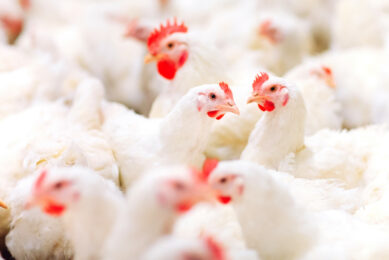Kiotech ready to hit the acquisition trail
It is just a year on from the £3.4 million acquisition of animal feed additives business Optivite, and Kiotech boss Richard Edwards is already scouting for his next big deal.
The integration has gone to plan, the cost savings, synergies and cross selling opportunities are coming through. And Kiotech has created a platform: one on which it plans to bolt on a series of new products through acquisitions of niche feed additive companies. Edwards has around £4 million in the bank and can supplement this with equity. For that he wants to add another £1 million to Kiotech’s annual profits."The deals I am looking at are well within the capacity we have got now – and they will also be part share transactions," Edwards told Proactive Investors. "The geographies we will look at include the UK, Germany, Spain and Benelux. "These contries have strong and innovative feed additive companies driven by European legislation which is the most stringent in the world in trying to promote healthy meat production.
"For example, the European Union was the first region to ban anti-biotic growth promoters in 2006 in favour of more natural products which Kiotech is focused on. "Potentially we might look at the US at some point. It’s an area we are not in. We need to be. But it is a big market over there so we need to work on it." "We won’t do any deals in China until we see some results from our start-up business there." Optivite, whose product range includes an omega-3 supplement for chickens and other animals, provided the manufacturing facilities to bring all of Kiotech’s production in house.
The deal will also catapult revenues to £22.5 million this year, according to broker FinnCap, compared with £10.95 million a year earlier.
The mistake many people make is to believe Kiotech is in the low margin bulk food business. It produces some animal feeds, which is a legacy of the Optivite business. But the additives side of the business, which accounts for almost 70% of revenues, is where Edwards wants to focus. The products usually offer a very easily quantifiable payback to food producer in terms of healthier, fatter birds and animals which might cover the initial outlay four or five times over. In the case of the additive pioneered by Optivite, it allows farmers to charge a premium for eggs containing health-giving omega-3 fish oils. Britain has pioneered the omega 3 story thanks to Optivite’s ingenuity, but the greater prize is internationally where families in developing countries want to ensure that they and their children are getting the best start nutritionally.
Edwards likens Kiotech to a speciality chemicals company that provides niche products. The chief executive is looking for some very specific lines to add to the offering as part of its "buy and build programme". "We could strengthen the enzyme range, and also branch into flavours, stimulants and plant extract products," Edwards says. "There are a number of companies out there that we would like to bring into the portfolio. Some of them are in Europe which leads the way in more natural animal feeds. "This is a fragmented market with many niche players. The bigger firms have gone down the high-volume acid, pre-mix route and not feed additives."
Edwards estimates the market for enzymes will reach US$7 billion annually by 2013 and is growing at around 6 per cent a year. Annual sales of acidifiers, meanwhile, is predicted to be US$1.3 billion by 2012. Changing demographics will support these positive trends over the medium and long term with developing nations of Asia and Latin America consuming more meat as average earnings grow. This is why new operations in Brazil and China, the world’s largest market for pork and poultry sales, could have a dramatic effect on the top line growth of Kiotech. "If China comes on stream in a big way then I would either have to go and acquire some manufacturing facilities or outsource the manufacture as an interim step," says Edwards.
This step change in sales is a significant milestone, according to Edwards. "It is sometimes more difficult to turn a £7 million company into a £20 million company than it is to transform a £20 million company into a £50 million, or a £100 million firm," he says. "What we have done is build a robust platform onto which we can bolt on a number of acquisitions."Founded in 1996, Kiotech began life developing fish attractants for the sports fishing and aquaculture market, and it retains an interest in aquaculture through its links with the Centre for Environment Fisheries & Aquaculture Science, a government agency. Today it is very firmly focused on the pig and poultry market and provides additives which promote growth and keep the livestock healthy.
Its products divide broadly into three categories: enzymes that ensure the animals gain more nourishment from their food; acidifiers that treat bacteria such as salmonella and e coli; and binders used in feed pellets to remove toxins.Source: Proactive investors











